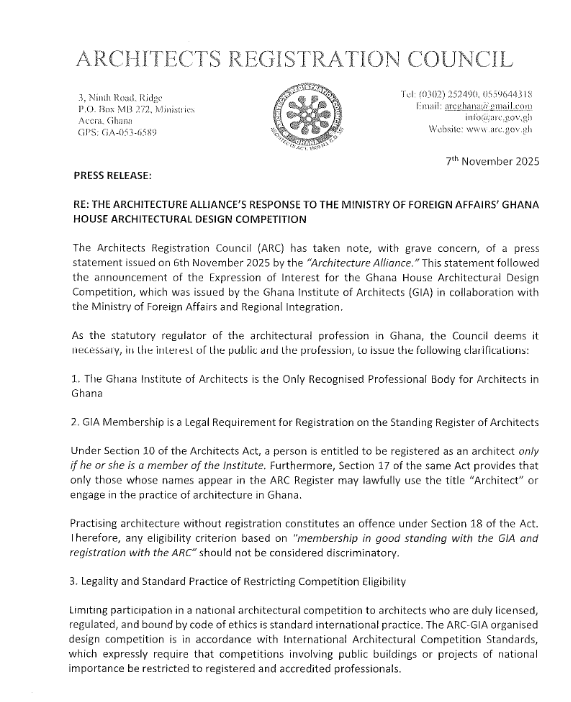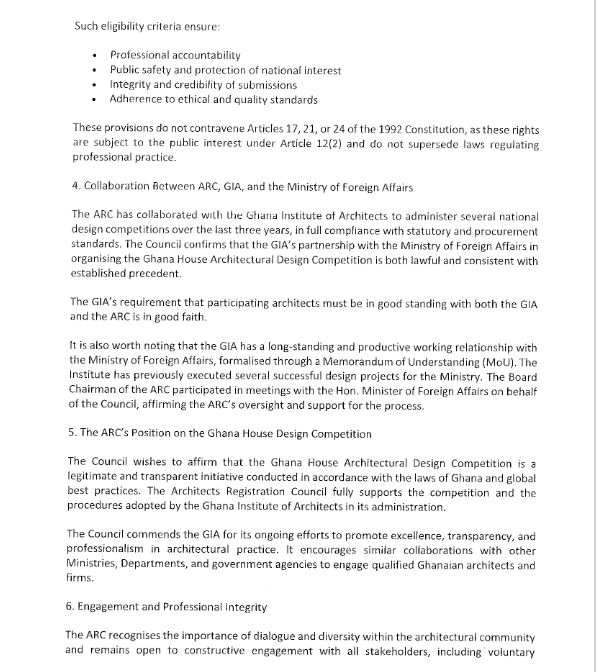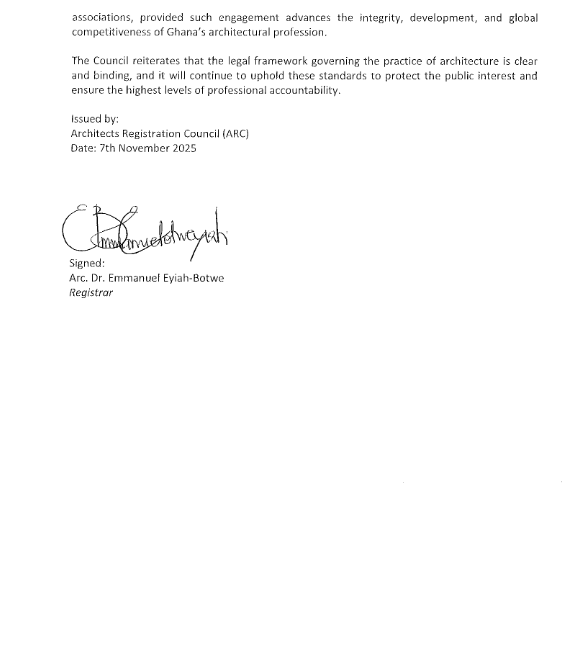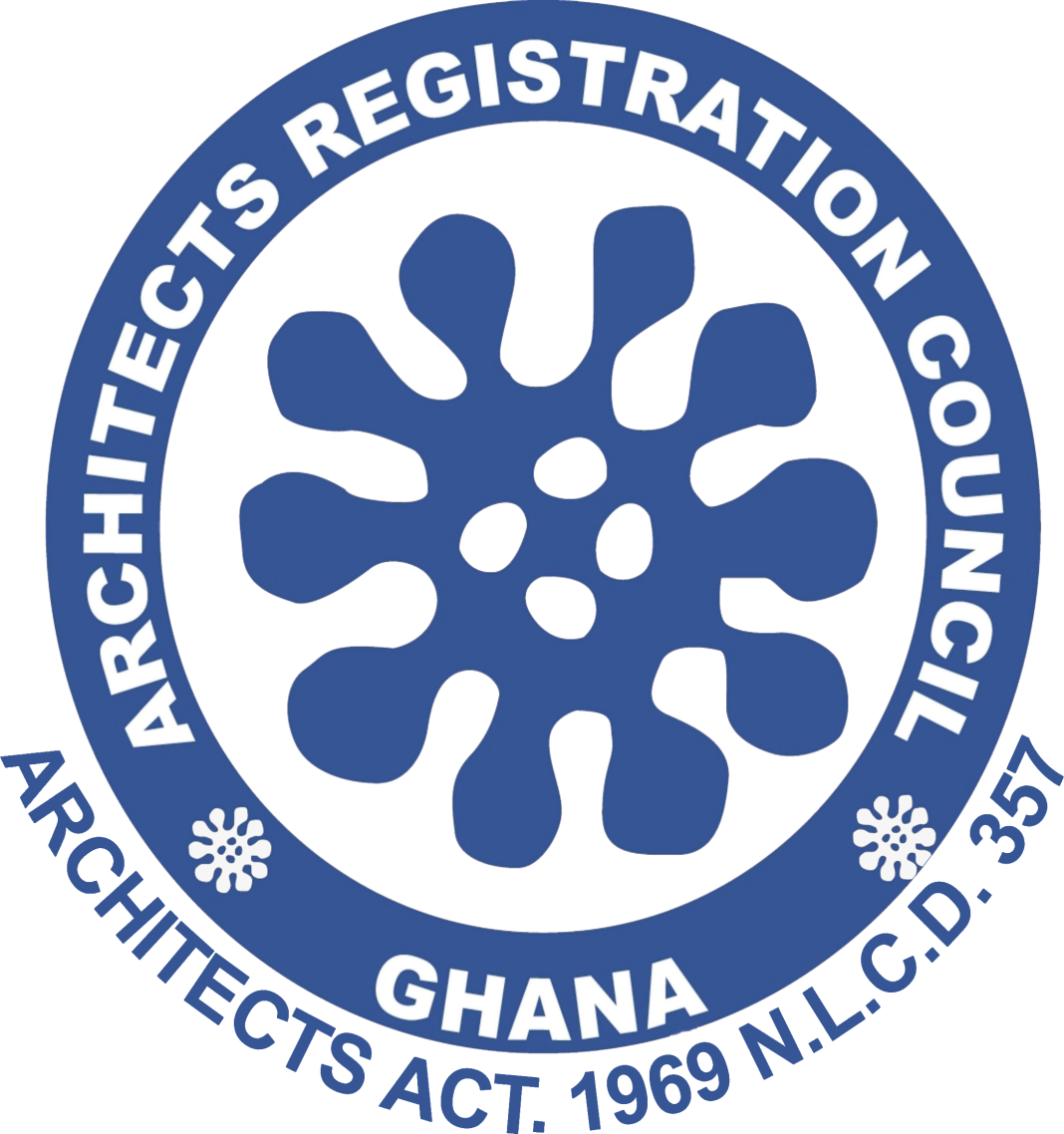The Architects Registration Council (ARC) has clarified legal and professional issues surrounding the Ghana House Architectural Design Competition, following criticism from The Architecture Alliance (TAA) that the contest’s eligibility criteria were discriminatory and unconstitutional.
In a statement issued on Friday, the ARC expressed “grave concern” over the Alliance’s earlier comments and reaffirmed its full support for the competition, which is being organised by the Ghana Institute of Architects (GIA) in collaboration with the Ministry of Foreign Affairs and Regional Integration.
According to the Council, the GIA is “the only recognised professional body for architects in Ghana,” and membership in good standing with the Institute is a legal requirement for registration as an architect under Section 10 of the Architects Act. The statement further cited Section 17 of the same Act, which provides that only those whose names appear on the ARC’s register may lawfully use the title “Architect” or engage in architectural practice in Ghana.
“Practising architecture without registration constitutes an offence under Section 18 of the Act. Therefore, any eligibility criterion based on membership in good standing with the GIA and registration with the ARC should not be considered discriminatory,” the statement said.
The ARC explained that restricting national design competitions to duly licenced professionals is standard international practice, particularly for public projects of national significance. Such requirements, it said, ensure accountability, public safety, and adherence to ethical and technical standards.
“These provisions do not violate constitutional rights under Articles 17, 21, or 24, as those rights are subject to the public interest under Article 12(2),” the Council noted.
The statement added that the Ghana House competition’s guidelines align with global norms for architectural competitions, which typically limit participation to registered professionals to safeguard the credibility and quality of submissions.
Addressing concerns over the GIA’s dual role as organiser and administrator, the ARC clarified that the Institute’s partnership with the Ministry of Foreign Affairs is both lawful and grounded in precedent. The Council revealed that the GIA and the Ministry have collaborated on multiple national design projects under a Memorandum of Understanding, with the ARC’s full knowledge and participation.
“The Board Chairman of the ARC has participated in meetings with the Hon. Minister of Foreign Affairs on behalf of the Council, affirming the ARC’s oversight and support for the process,” the release stated.
The ARC reaffirmed that the Ghana House Architectural Design Competition is a transparent, well-regulated process aimed at promoting excellence in Ghanaian architecture. It commended the GIA for its continued efforts to advance professionalism and ethical standards, and encouraged other government agencies to engage qualified Ghanaian architects through similar initiatives.
“The Ghana House competition is legitimate, lawful, and consistent with both national legislation and international best practices,” the ARC emphasised.
While defending the competition’s framework, the Council also extended an olive branch to dissenting voices within the profession, including The Architecture Alliance, stressing that it remains open to constructive dialogue.
“The Council recognises the importance of engagement and diversity within the architectural community and welcomes collaboration with all stakeholders, provided it strengthens the integrity, development, and global competitiveness of Ghana’s architectural profession,” the statement concluded.
The Ghana House Architectural Design Competition aims to produce a landmark architectural model that will serve as the design standard for Ghana’s diplomatic missions abroad.



Architecture Alliance challenges Ghana House Design competition rules
